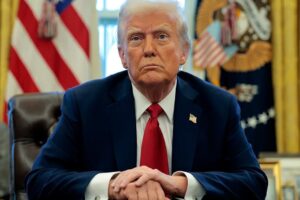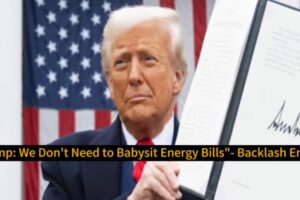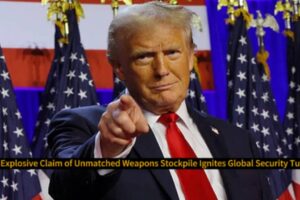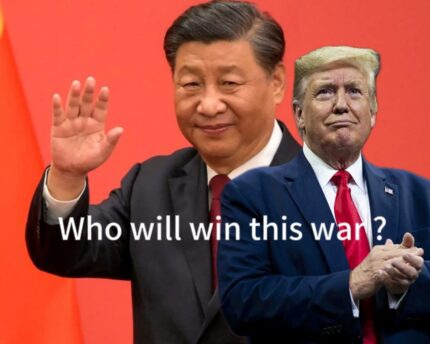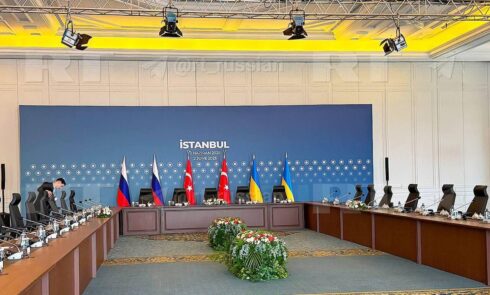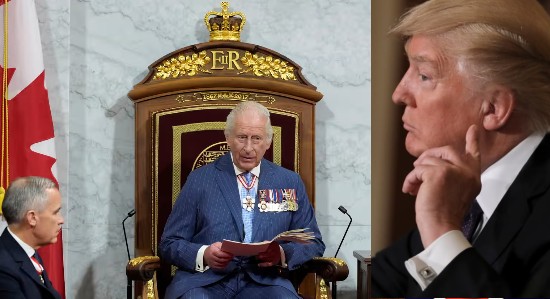China has issued a sharp warning to countries considering trade agreements with the United States that could undermine Beijing’s economic interests. A spokesperson for China’s Commerce Ministry declared that any nation striking a deal that compromises Chinese interests would face firm and immediate countermeasures.
“Appeasement cannot bring peace, and compromise cannot earn one respect,” the spokesperson emphasized, underscoring Beijing’s readiness to defend its market position aggressively. This stern message follows reports that the US is pressuring other governments to limit trade with China in exchange for relief from newly imposed American tariffs.
The warning echoes sentiments expressed in a recent editorial by the state-controlled China Daily, which specifically cautioned the European Union against falling into what it called a “trap of appeasement.” China’s stance signals an escalation of tensions in the ongoing trade war, raising concerns that smaller economies may be caught between the competing demands of Washington and Beijing.
US Seeks Concessions in Exchange for Tariff Relief
The Trump administration has been actively engaging trading partners in negotiations aimed at reshaping the global trade order to America’s advantage. Japanese officials initiated talks in Washington last week, while South Korea is set to begin similar negotiations imminently.
President Trump claims that more than 70 countries have expressed interest in negotiating since he introduced sweeping tariffs earlier this year. Analysts suggest that Washington is leveraging the tariffs as a bargaining tool to force nations to choose sides in the escalating US-China economic confrontation.
“If you put the numbers on it, about 20% of Japan’s profitability comes from the United States, about 15% comes from the People’s Republic of China,” explained Jesper Koll, a senior adviser at Japanese online trading platform Monex Group. As a result, countries like Japan are in a precarious position, reluctant to alienate either of their two largest trading partners amid rising pressure.
Asia-Pacific Allies Caught in the Middle
Japan’s top tariff negotiator, Ryosei Akazawa, met with President Trump last week in a bid to safeguard Japan’s trade interests without fully siding against China. Tokyo’s delicate balancing act highlights the challenges faced by US allies that have extensive commercial ties with both Washington and Beijing.
Meanwhile, South Korea’s acting president, Han Duck-soo, has confirmed that Seoul will commence trade talks with the US this week, aiming to minimize damage from American tariffs while avoiding overt confrontation with China.
India is another key player under pressure. US Vice President JD Vance is scheduled to meet Indian Prime Minister Narendra Modi during an official visit aimed at brokering a deal. Without an agreement, India faces steep 26% tariffs on its exports to the United States—a potential blow to its growing economy and strategic ambitions.
Trump’s Tariff Strategy Sparks Global Uncertainty
Since returning to office in January, Trump has aggressively deployed tariffs as a centerpiece of his economic policy. His administration has slapped taxes of up to 145% on Chinese imports, with threats of combined levies reaching as high as 245% on certain goods. Other countries are facing a blanket 10% US tariff set to last until at least July.
Trump argues that these measures will encourage Americans to “buy American,” boost domestic manufacturing, and generate significant new tax revenues. However, critics warn that reshoring manufacturing is a complex, long-term project unlikely to yield immediate benefits. In the short term, businesses and consumers alike may suffer from higher prices and disrupted supply chains.
In a sign of the administration’s internal contradictions, Trump paused the tariffs on dozens of countries—excluding China—just hours after they were set to take effect earlier this month. The abrupt 90-day reprieve, reportedly issued in response to political and market backlash, has fueled accusations of inconsistency and further rattled global economic confidence.
China Vows to “Fight to the End” in Growing Trade War
Beijing has not remained passive in the face of Washington’s escalating trade actions. China has imposed retaliatory tariffs of up to 125% on American products and has repeatedly vowed to “fight to the end” to protect its economic interests.
Officials in Beijing stress that they will never accept international arrangements that marginalize China’s role in the global economy. Instead, they promise to respond with proportionate and, if necessary, escalating measures against countries that assist US efforts to isolate China.
With no clear end in sight, the intensifying rivalry between the world’s two largest economies is sowing global uncertainty. As nations navigate this fraught landscape, they face difficult choices: side with Washington and risk Beijing’s wrath, or attempt a precarious balancing act that could prove increasingly unsustainable as tensions escalate.






